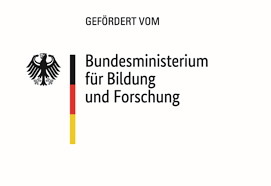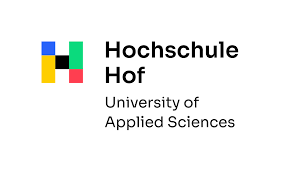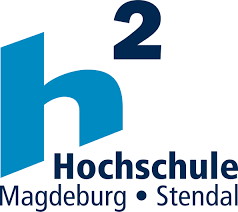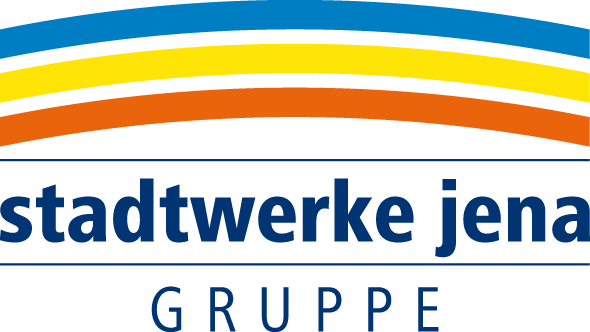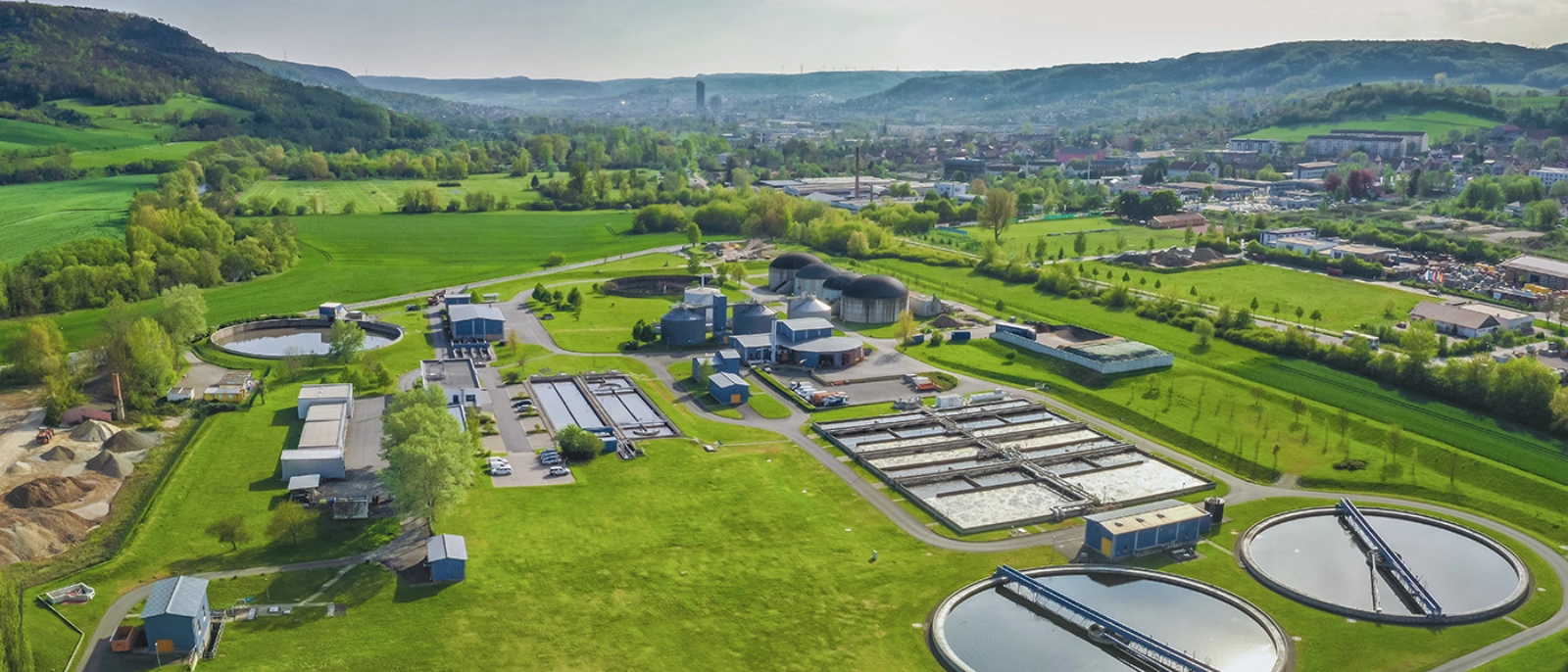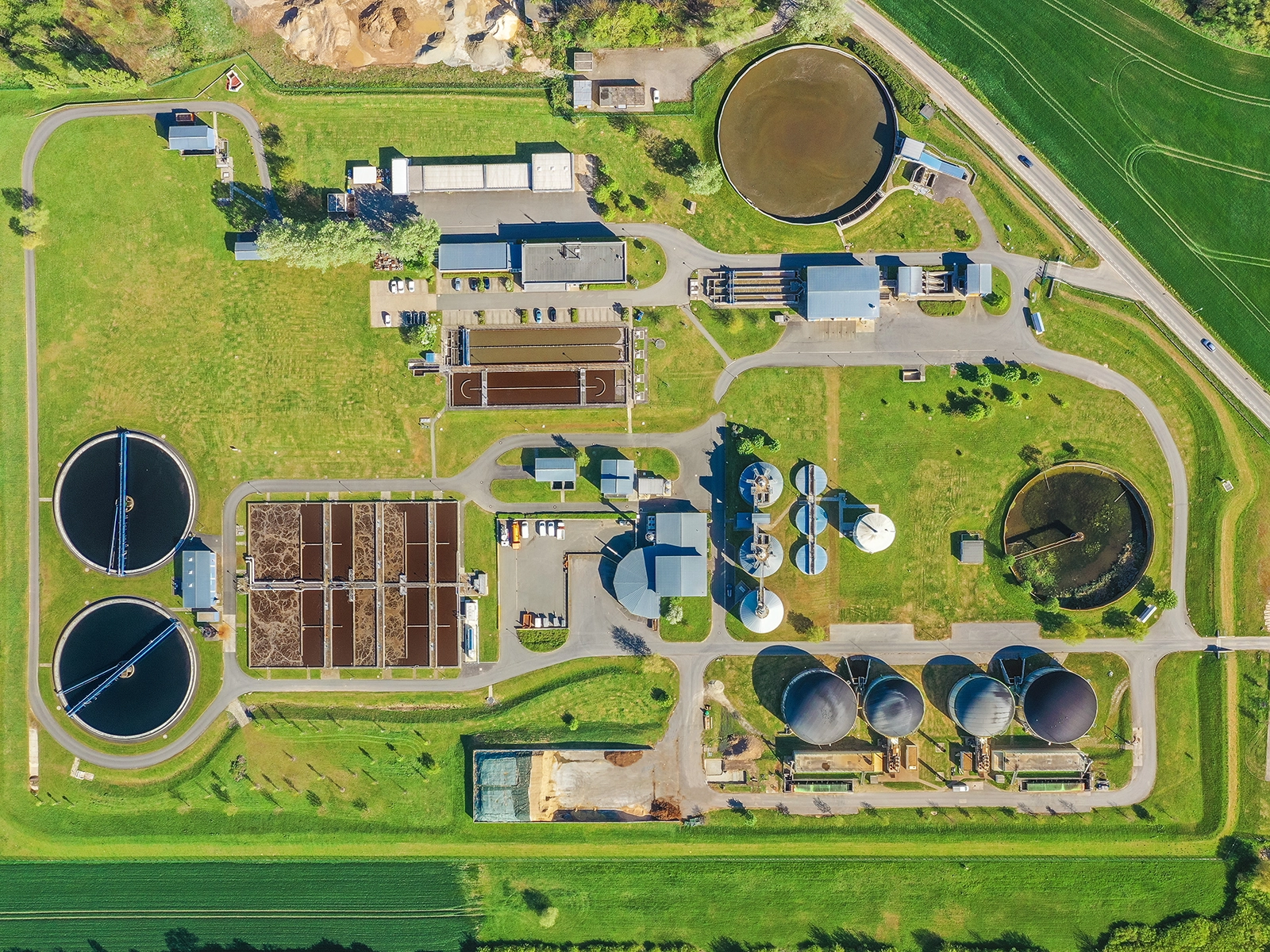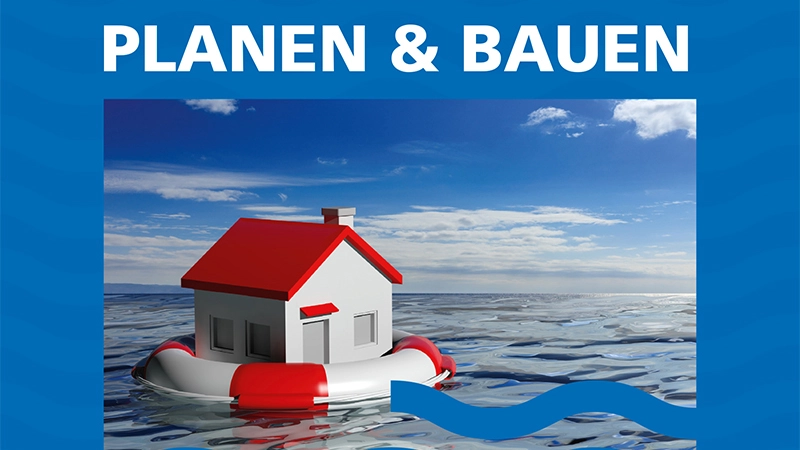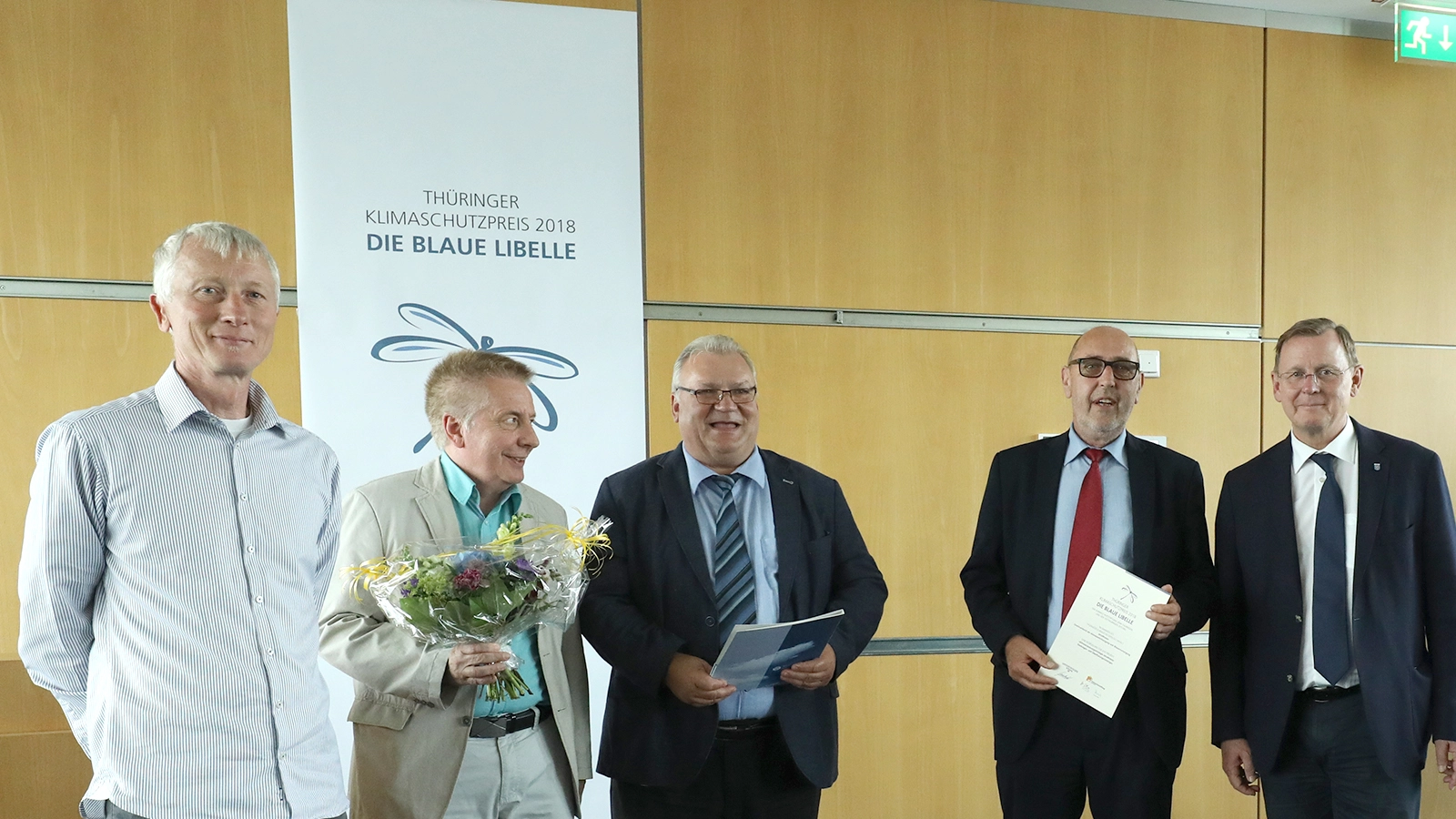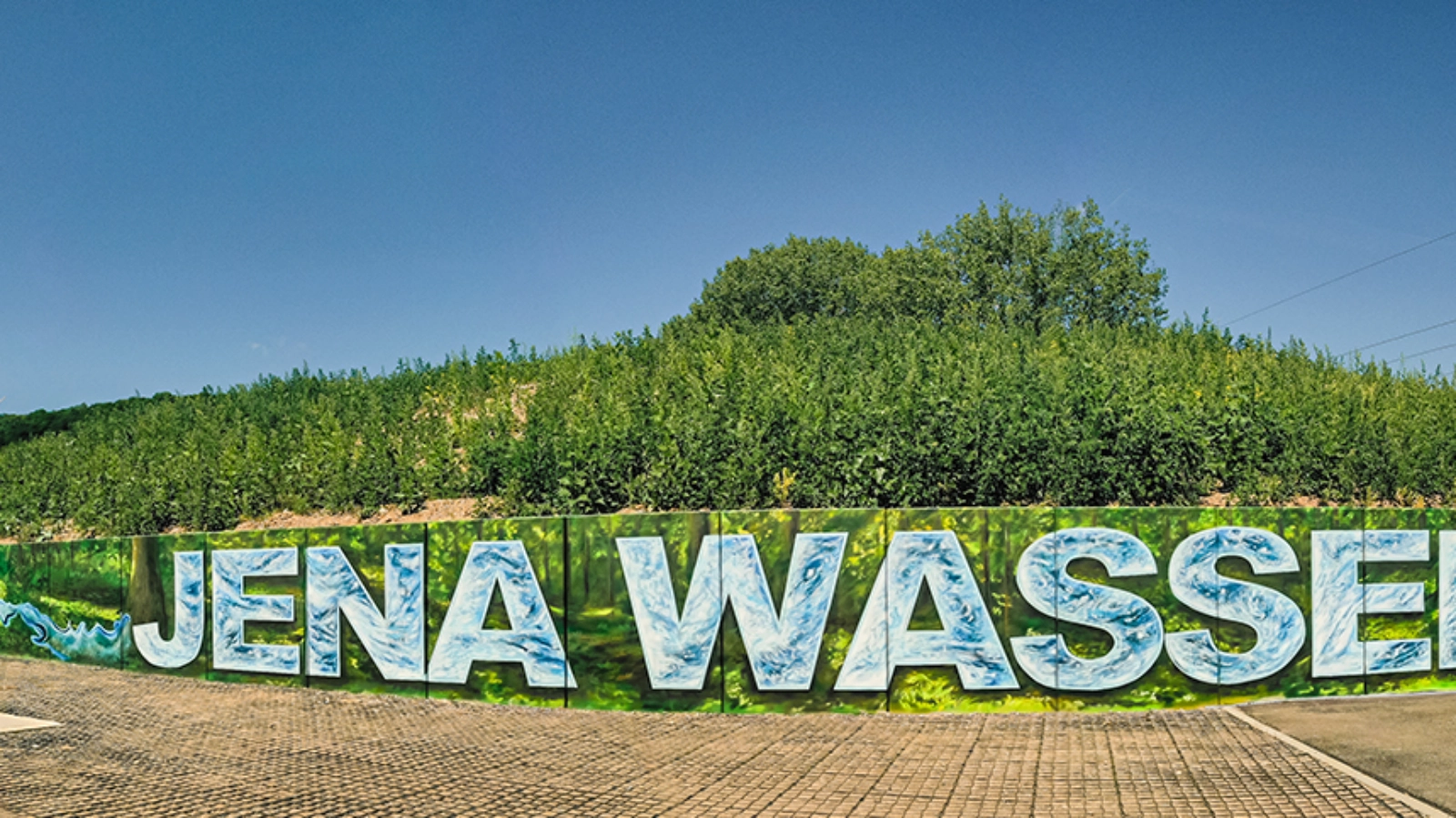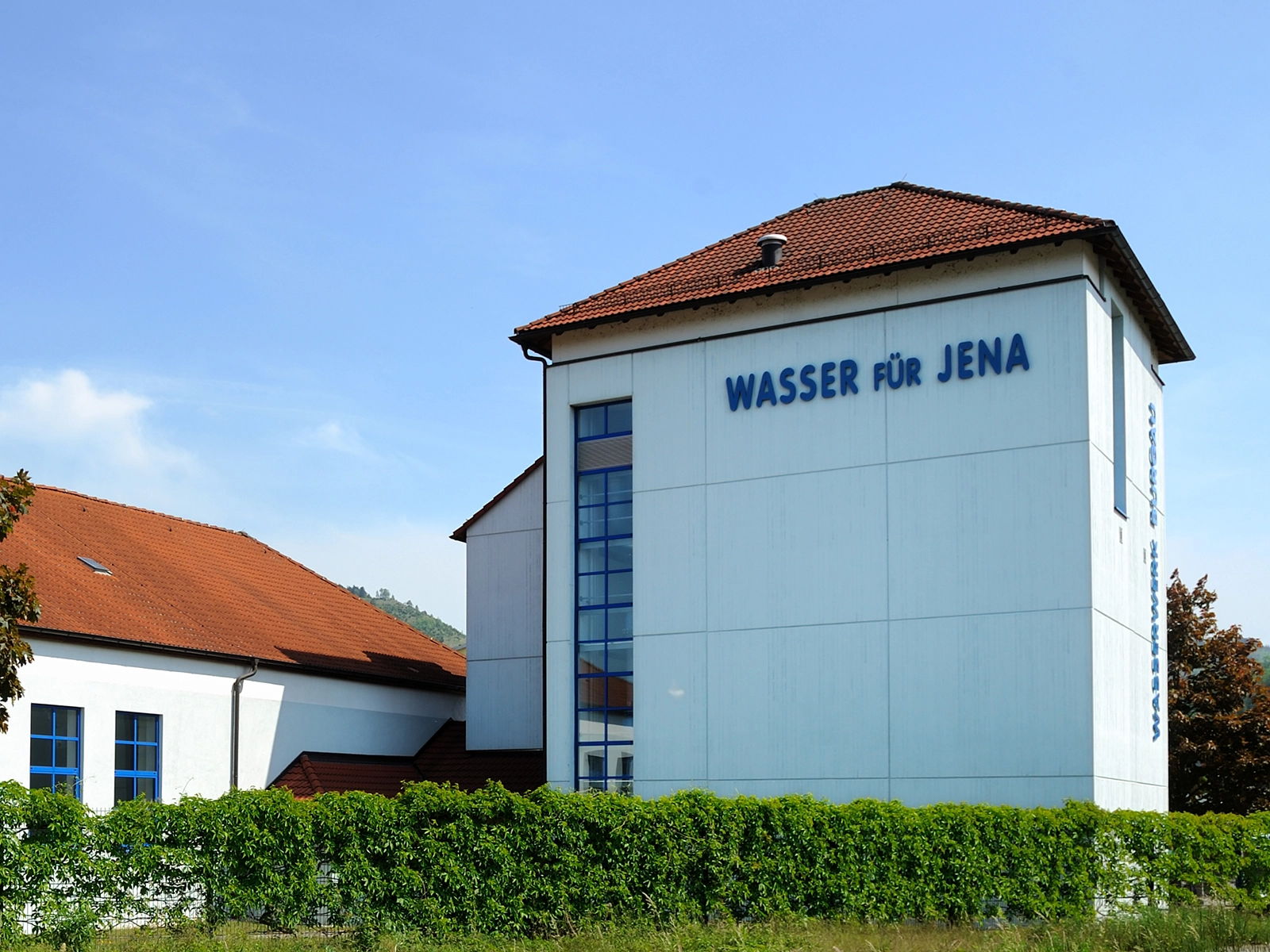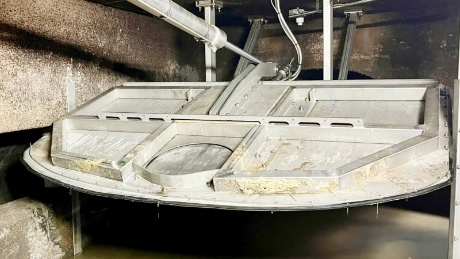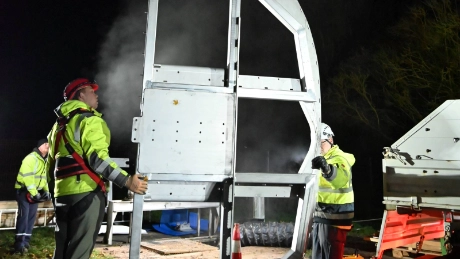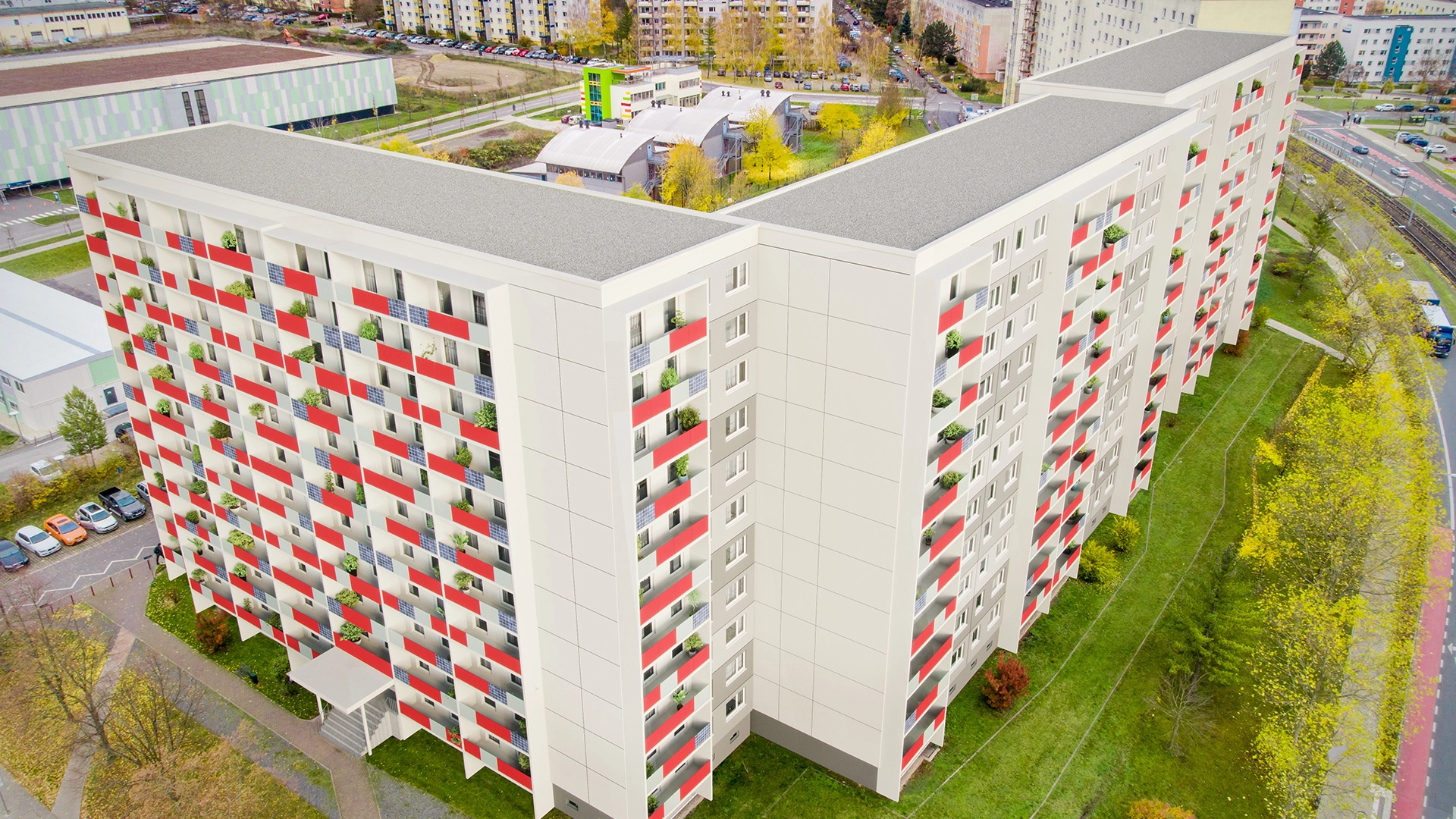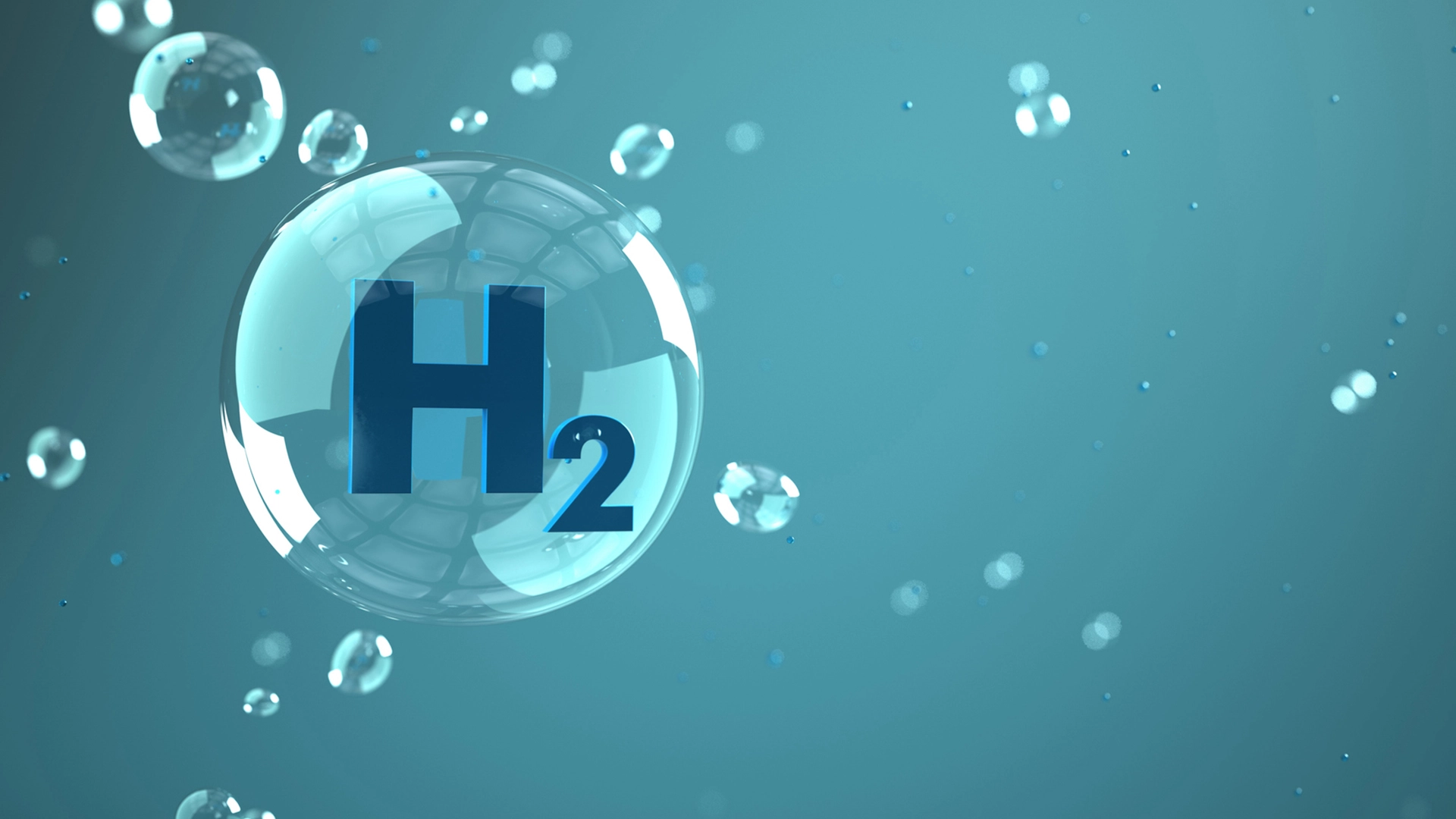InSchuKa: Facing climate change with intelligent sewer tunnels
In a research project conducted by the Universities of Applied Science Hof and Magdeburg-Stendal, Stadtwerke Jena and the Zweckverband JenaWasser are testing a system of digitally controllable tunnel valves. These react flexibly to extreme weather such as heavy rain or drought and help in this way to avoid ecological damages.
What is it all about?
Extreme weather conditions, such as heavy rain and drought, pose major challenges for the wastewater industry: During heavy rainfall, the sewer capacity is often insufficient to remove the huge amount of water. On the other hand, during long dry periods, the sewers often have to be flushed additionally to prevent foul-smelling deposits and other damage.
The project name InSchuKa is a shortened version of the entire project title "Kombinierter Infrastruktur- und Umwelt-Schutz durch KI-basierte Kanalnetzbewirtschaftung im Rahmen der Jenaer Eigeninitiative ZEUS" (combined protection of infrastructure and environment by AI-based tunnel network management within the conext of the Jena initiative ZEUS).
The project is funded by the Federal Ministery of Education and Research.
Who is participating?
In the project InSchuKa, JenaWasser and the Stadtwerke Jena group are working together with two research institutes and three partners from industry:
- Hochschule Hof
- Hochschule Magdeburg-Stendal
- Zweckverband JenaWasser, Jena
- HST Systemtechnik GmbH & Co KG, Meschede
- Pegasys Gesellschaft für Automation und Datensystemen, Meschede
- Nivus GmbH, Eppingen
What is the plan?
By 2025, a system of flexibly deployable butterfly valves is to be installed in Jena's main wastewater collector, which stretches from Lobeda to the central sewage treatment plant in Jena-Zwätzen, and made controllable via a digital platform. Artificial intelligence techniques will be used to automate sewer control.
Based on real-time data from the sewer and available weather forecasts, among other things, the transport volume in the main collector is to be increased or reduced as required with the help of these sewer flaps. The aim is to optimally utilise the (storage) volume of the sewer in order to prevent the sewers from "overflowing" during heavy rainfall and to be able to retain water for flushing for eventual dry periods.
Video: Was ist InSchuKa?
Mit intelligenten Abwasserkanälen dem Klimawandel begegnen
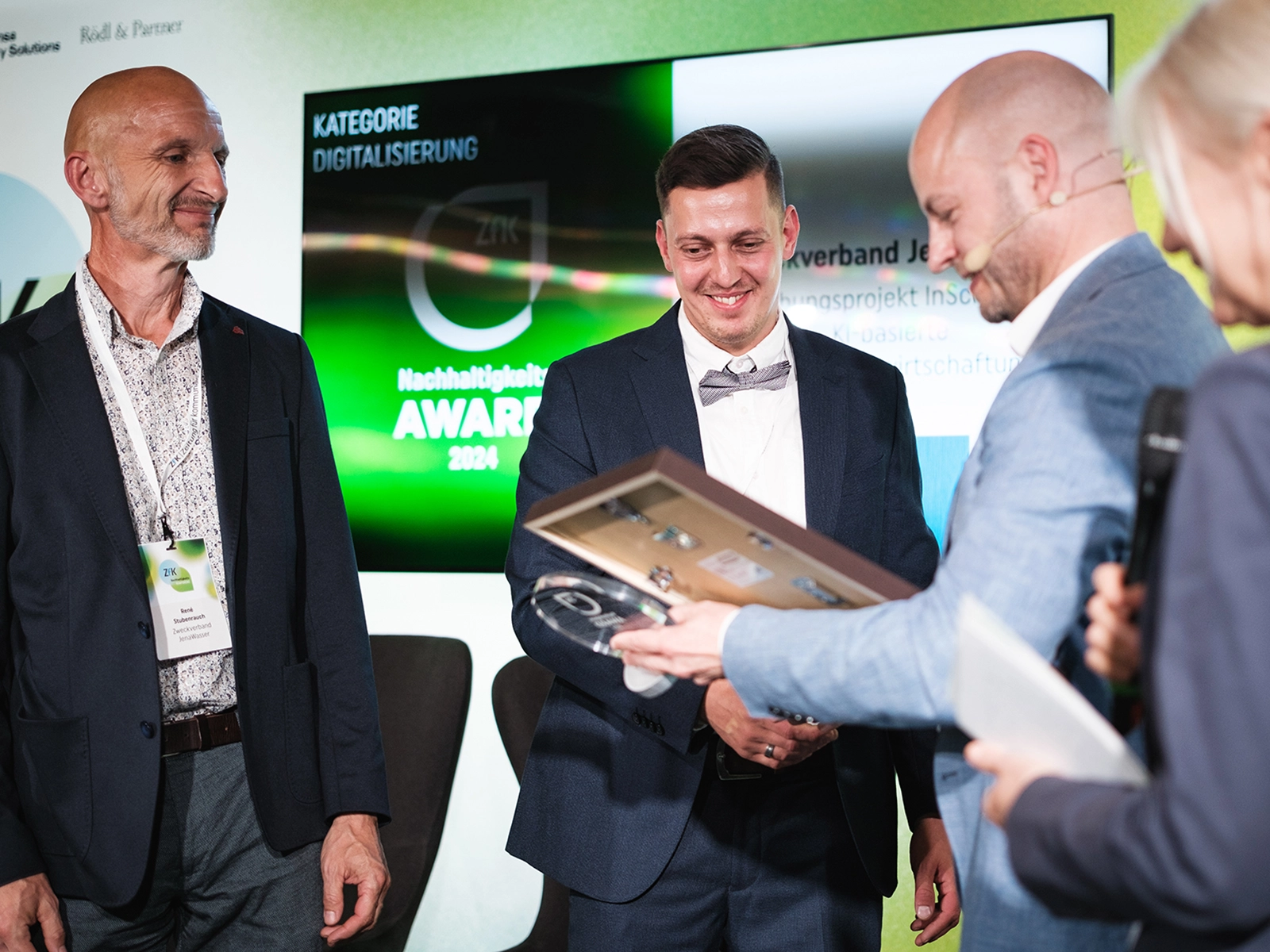
InSchuKa erhält NachhaltigkeitsAWARD
Hohe Ehre für unser innovatives Forschungsprojekt: Auf der Nachhaltigkeitskonferenz 2024 nehmen René Stubenrauch und Robert Köllner den ZfK-NachhaltigkeitsAWARD in der Kategorie Digitalisierung entgegen.
Video: Mit intelligenten Abwasserkanälen auf den Klimawandel reagieren
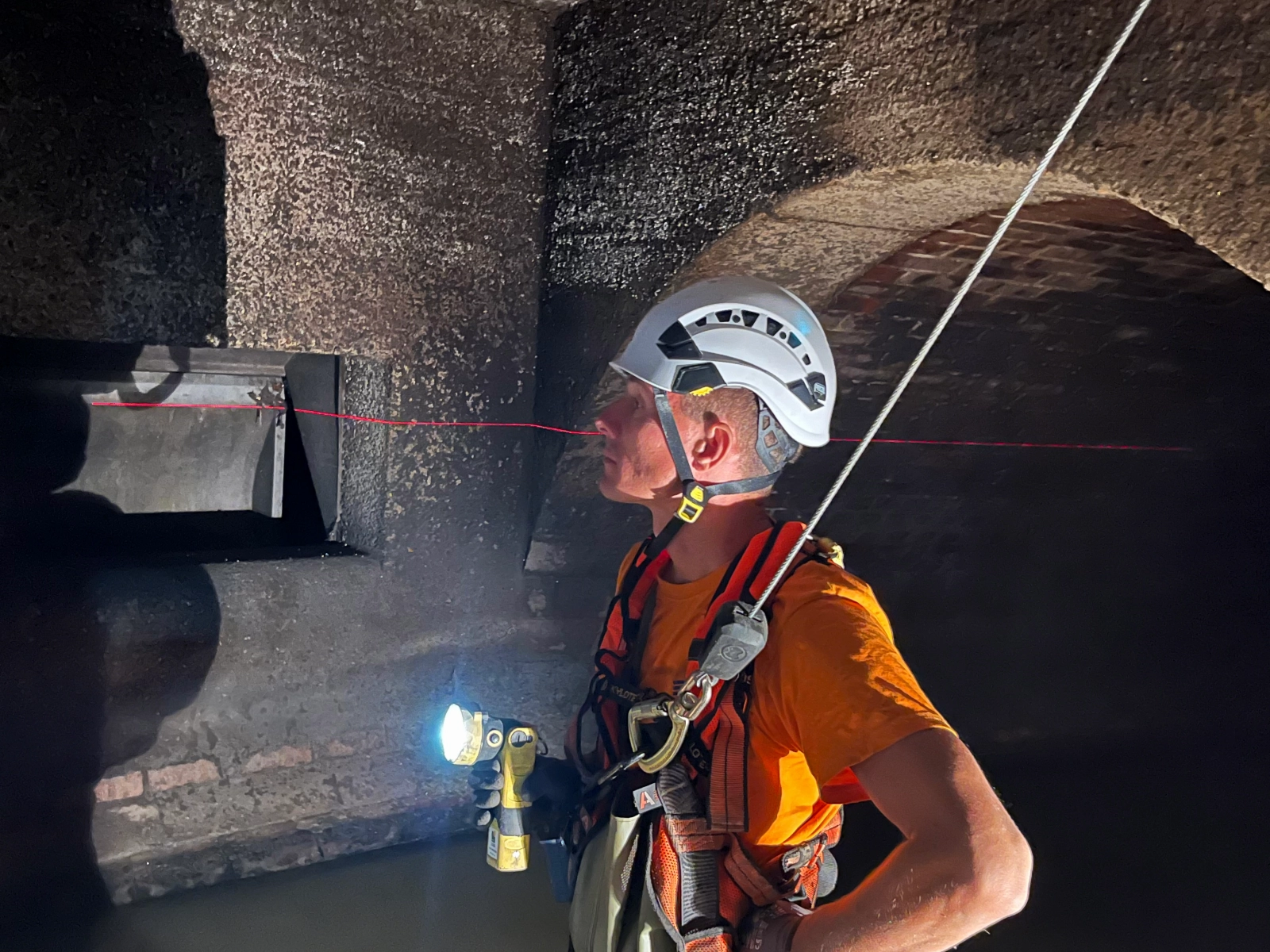
Kanalvermessung für Projekt „InSchuKa 4.0"
Für die Herstellung der digital steuerbaren Kanalklappen war eine genaue Vermessung des Hauptsammlers nötig
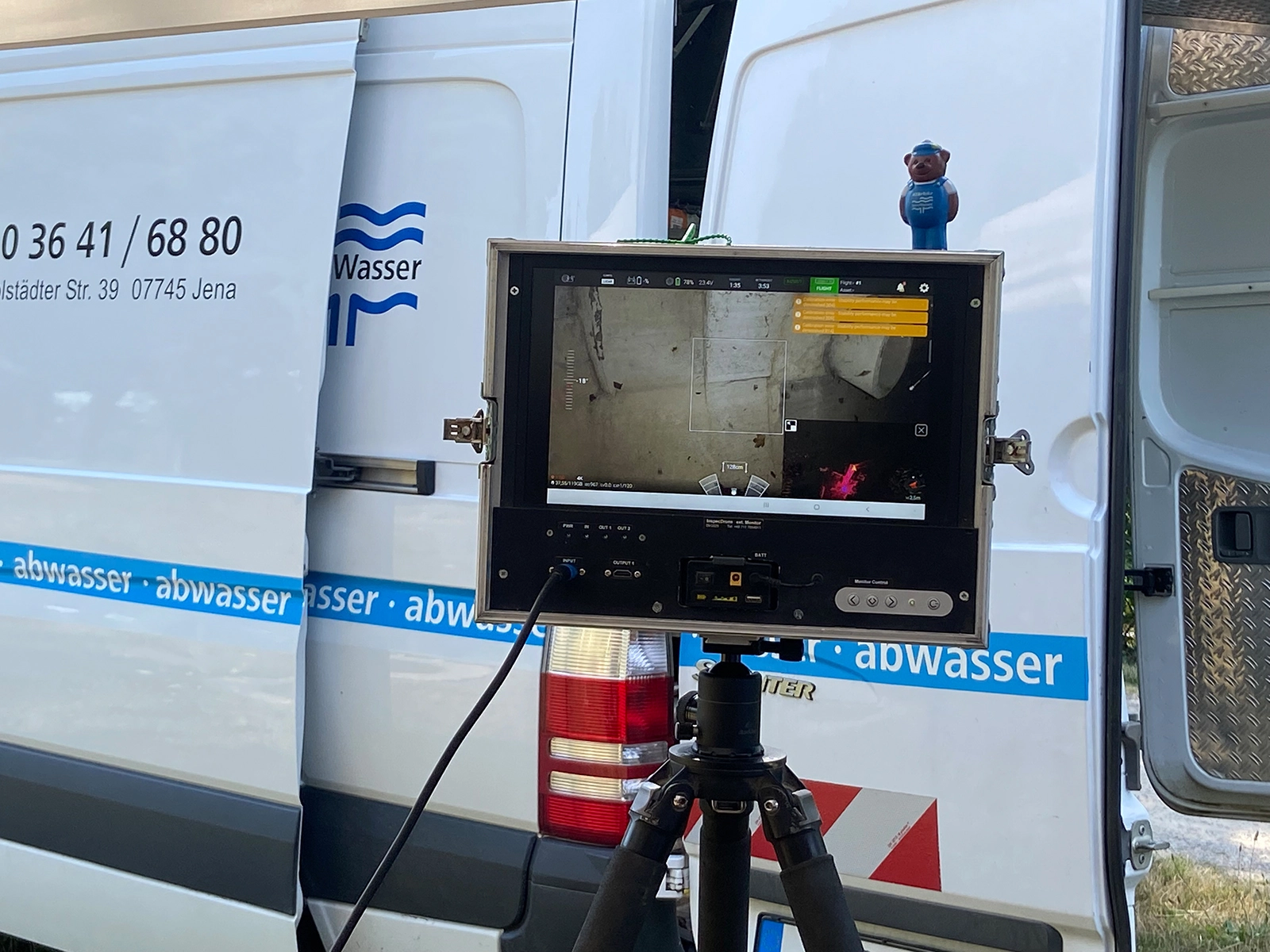
Blogbeitrag: Darum geht es bei unserem Forschungsprojekt InSchuKa
Mit flexibel steuerbaren Abwasserkanalklappen dem Klimawandel begegnen: Das ist die Idee von InSchuKa 4.0. Mehr zu dem Projekt erfahren Sie in unserem Blogbeitrag.
Adapting to the climate: Further projects on water
Video: Flood protection for your home
Protecting your own belongings from heavy rain and flooding is primarily the responsibility of the building owner. In a video, JenaWasser explains which measures are sensible and important.


